World of Warcraft: Confessions of an Ex-Gamer
Exposing gamer addiction in Cambridge and the path to recovery
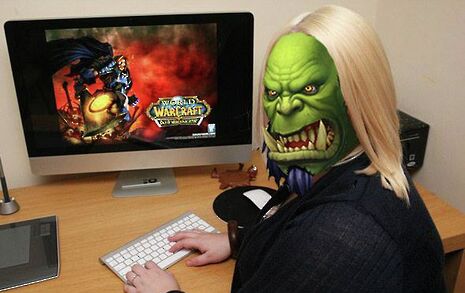
The first stage in the recovery of addiction is acknowledgement. And I have finally fully acknowledged that I am a recovering game addict: an ex-World of Warcraft (WoW) player, to be precise.
For those less nuanced in the gaming world, WoW is a MMORPG (Massively Multiplaying Online Roleplaying Game) with over ten million paying subscribers worldwide. To enter WoW is to immerse yourself in a world of mages, elves, orcs and dragons. It is an ulterior life of quests and raid mates. A pixelated haven where reality becomes surreality and dreams come true. But hush! The first rule of World of Warcraft is: you do not talk about World of Warcraft.
As a childhood gamer, my WoW habit was my deepest secret. Like some awkward, pre-pubescent parody of Jekyll and Hyde, I found myself leading a double life with two personalities: the online persona and the real me. By day I was your average, mildly sociable teen. By night I was Goldeneye, Night Elf Hunter of the realm Nordrassil and Guildmaster of ‘Hunters of the Dark’. I both loved and hated this character, wiling away hours of my life to accumulate what felt like a bottomless pit of gold and armour.
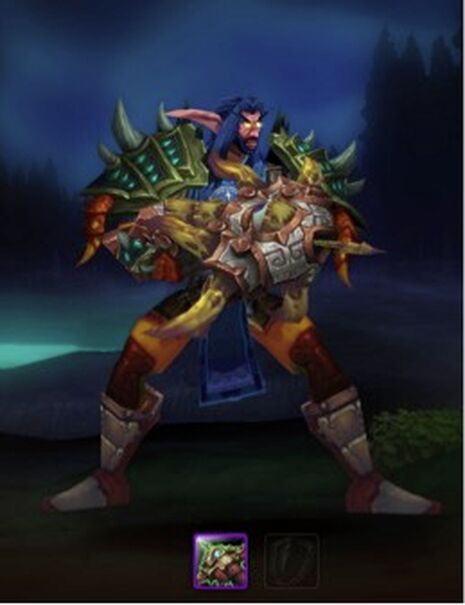
Along with this habit came a crippling fear of being found out. If the topic of gaming ever crept up in a conversation I would abruptly laugh “World of Warcraft? God, who even plays that?”, then quickly wipe away the clammy hands, internalising the rising panic. Days and nights were spent voraciously clicking the mouse during epic dungeon raids, only to be abruptly interrupted by the sounds of approaching footsteps. A quick ‘Ctrl + Alt + Esc’! and, crisis averted, the rest of the world would continue, oblivious to my gaming habit.
By comparing myself to the extreme gamers, I would be lulled into a false sense of security that I wasn’t playing too much. A fellow guild member once told me how “back in the day” he would mix cocaine and speed to stay up levelling a character for three consecutive nights. “At least I’m not inhaling drugs to keep playing,” I thought. How very pious of me.
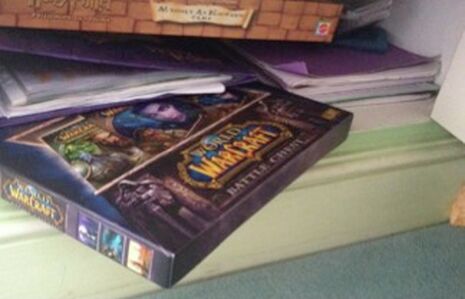
Still, I sunk deeper into the game and became irritable and anxious, projecting the anger from a failed quest onto bewildered family members. At the peak of addiction, I sacked off my best friend’s birthday party, feigning sickness to run back to a key raiding session with all my online pals. The next day I was smothered in guilt and finally decided to leave the game forever. Committing digital suicide, I deleted my account and all traces of it from my laptop. With that, I swept my gaming days under the rug, pretending as if they never existed. Although, the ominous final words of a fellow Guild member still ring in my ears today: “Once a WoW-player, always a WoW player.”
Only upon reaching university did I finally break the silence and confess to the extent of my gaming habits. I soon found the more I talked about it, the more people revealed their ex-gamer past, all of them with their own stories of addiction.
Susannah Evans, a third-year engineer and Tauren druid, realised it was time to quit when she similarly started faking sickness to play. Now Susannah is more accepting of her gaming past, but admits its impact on her. “It’s part of me.”
Unlike Susannah, there are still many who have not yet managed to put the game behind them. Wowaholics Anonymous, whose motto reads “Quit WoW, Win at Life”, is littered with stories of lives falling apart in the wake of WoW addiction. Many distressed gamers express their regret of ever starting to play. “This game has taken so much of my time. I am ashamed, I wish I had never heard of it and started this spiral into a black hole,” shares one anonymous gamer with the forum.
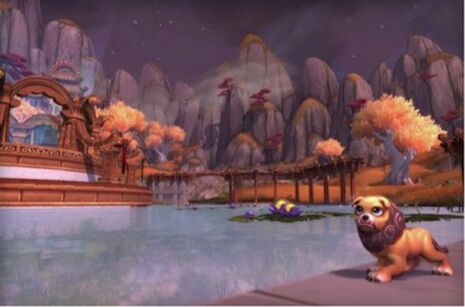
Isaac Vaisverg failed his Law degree after staying in his room for a solid five-week gaming binge. Playing up to 15 hours a day, he dropped all contact with the outside world and put on 18 kilograms. It was when his mother arrived that he broke down and agreed to join reSTART, the first rehab centre for internet addiction. Opening in 2009, reSTART costs up to $14,000 for a 3-month stint, and involves immersing yourself in the ‘beauty of nature’.
But the degree of WoW addiction doesn’t end there. It can reach a point of life-threatening severity. A recent WoW-based fatality occurred in an Internet café in northern China. The player spent his seven-day holiday in front of the screen. Living off pizza and energy drinks, he eventually succumbed to a cardiac arrest.
It can be difficult to understand how people can become so hooked to gaming. Some argue that it is addictive personalities as opposed to addictive games. Charlie, a second year historian and Undead mage, suggests it is more importantly a form of escapism: “WoW made me feel good: I was a respected top gamer with web friends from around the world.”
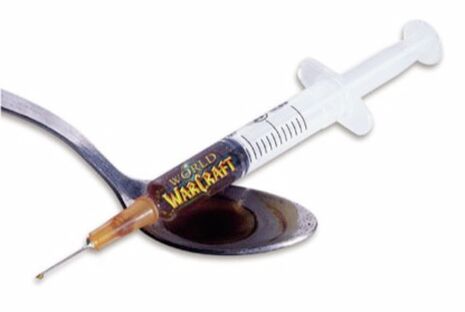
Nick Dinan, a finalist and Night Elf druid, suggests that the real trap is the complexity of the game: “You make ties and become a member of a community.” Nick left WoW after suffering from an “existential crisis” within the game itself. “Eventually life in WoW became more mundane… I’d spend weeks working to get a new piece of equipment and it started to feel a bit meaningless.” However, Nick still feels a “rich nostalgia” when reminiscing over his gaming days.
Obsessive gaming is an increasingly common worldwide phenomenon, with varying degrees of addiction. The most extreme form can lead to lives ruined or even lost. The other end of the spectrum is your average, intense gamer. They’ve most likely suffered from a period of addiction and are now either in a stasis of recovery or have buried their addiction under a pile of self-denial. These are the less conspicuous ones; they break the stereotype, and are far more common than you might think.
In fact, they’re probably sitting right next to you, wiping away their clammy hands and trying to change the topic. But remember, the first stage of recovery is acknowledgement, and acknowledgement only occurs when people feel comfortable enough for open discussion. So embrace their moist hand in your own and don’t let them change the topic. Break down the barrier of embarrassment and help them accept their past gaming selves. After all, once a WoW-player, always a WoW player.
 News / Fitz students face ‘massive invasion of privacy’ over messy rooms23 April 2024
News / Fitz students face ‘massive invasion of privacy’ over messy rooms23 April 2024 News / Cambridge University disables comments following Passover post backlash 24 April 2024
News / Cambridge University disables comments following Passover post backlash 24 April 2024 Comment / Gown vs town? Local investment plans must remember Cambridge is not just a university24 April 2024
Comment / Gown vs town? Local investment plans must remember Cambridge is not just a university24 April 2024 Comment / Does Lucy Cavendish need a billionaire bailout?22 April 2024
Comment / Does Lucy Cavendish need a billionaire bailout?22 April 2024 Interviews / Gender Agenda on building feminist solidarity in Cambridge24 April 2024
Interviews / Gender Agenda on building feminist solidarity in Cambridge24 April 2024





